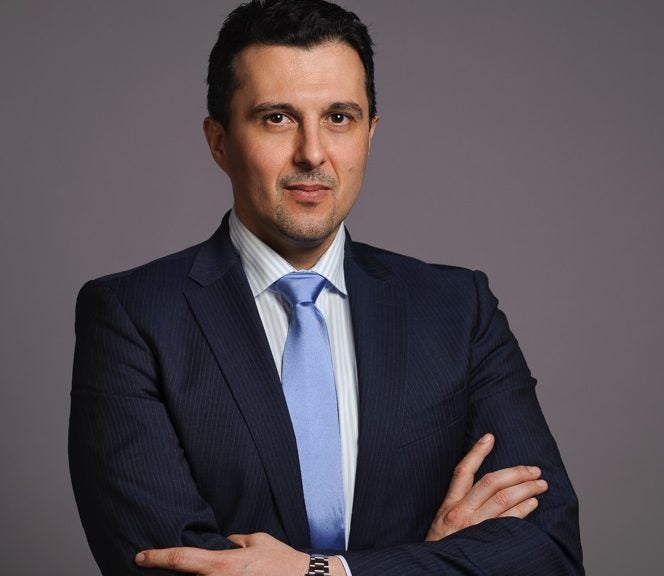New Book Examines Contrasts Between Western and Arab Media Coverage

How can two news networks reporting on the same event produce such vastly different coverage? Georgetown University in Qatar’s (GU-Q) Dr. Tarek Cherkaoui explores the reasons that influenced media narratives surrounding the 2003 Iraq War in his new book.
The News Media at War: The Clash of Western and Arab Networks in the Middle East examines the complexities of news coverage of the war against a backdrop of conflicting Orientalist and pan-Arab viewpoints. To celebrate the release of the book, GU-Q will be hosting a public launch event at its Education City campus at 6:00 p.m. on Wednesday, May 10.
In the book, Cherkaoui reveals how legacies of the past, which divide the world into overly simplistic views of ‘us’ against ‘them’, played a role in divergent media coverage of the war produced by major international news networks.
“My primary motivation to write a book about this subject was to address the fundamental gap in worldview, perception, and communication between the West and the Arab World,” said Cherkaoui, associate director for strategic communications at GU-Q. “The media coverage of the Iraq War provided a fitting case study of how this gap can be created through the distribution and framing of information.”
The book explains how U.S. media outlets did not serve their expected role as ‘watch dogs’, failing to critically examine the reasons the government used to justify the war in Iraq. He details how the state ensured pro-war media coverage by taking deliberate steps to control the release of information, and put forward a view of Arabs as a ‘threat’ to the West. These strategies, when coupled with an audience prone to consuming media biases and the rise of for-profit media conglomerates which did not follow journalistic best practices, resulted in reporting from Western media that was vastly different from that of their counterparts in the Arab world.
In the Middle East, news reports presented the war as an unjustified invasion, opposing the perspectives offered by the U.S. government and its military. Broadcasts included input from both sides of the conflict, and journalists had on-the-ground access to developments that their Western competitors did not. While it also acknowledges flaws in the coverage of Arab networks, the book uses these contrasting news reports to highlight the different approaches that were taken, against a backdrop of military-devised information control strategies.
“War coverage is not merely a dry representation of conflicting viewpoints. It is infused with flesh, blood, and emotion,” said Cherkaoui. “The triumph of the orchestrated image and war-as-spectacle, which thrills and entertains some people, means also that viewers have become direct participants, as war outcomes are partly decided in living rooms.”
Cherkaoui, a strategic communications expert, holds a Ph.D. in Media and Communication Studies from Auckland University of Technology. His research interests include Arab transnational media, public diplomacy, propaganda and information control, soft power, media-military relations, and political and military affairs within a Middle Eastern context.